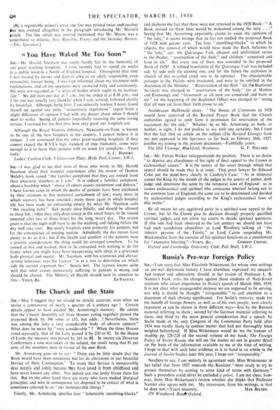Sta,—Mr. Felvus Walker misapprehends the position. There is no desire
" to deprive any churchman of his right of final appeal to the Crown in ecclesiastical causes." It is the nature of the court through which that appeal should be made that is at issue. That great lawyer Sir Edward Coke put the point 'ery clearly in Caudrey's Case: " As in temporal causes the King, by the mouth of the judges in his courts of justice, doth judge and determine the same by the temporal laws of England: so in causes ecclesiastical and spiritual (the conusance whereof belong not to the common laws of England) the same are to be determined and decided by ecclesiastical judges according to the King's ecclesiastical laws of this realm."
By all means let any aggrieved party in a spiritual case appeal to the Crown, but let the Crown give its decision through properly qualified spiritual judges, and not allow lay courts to decide spiritual questions. If this rule had been observed in the last century we should not have had such scandalous absurdities as Lord Westbury talking of " the inferior persons of the Trinity," or Lord Cairns suspending Mr. Mackonochie from the exercise of his spiritual functions as a punishment






































 Previous page
Previous page